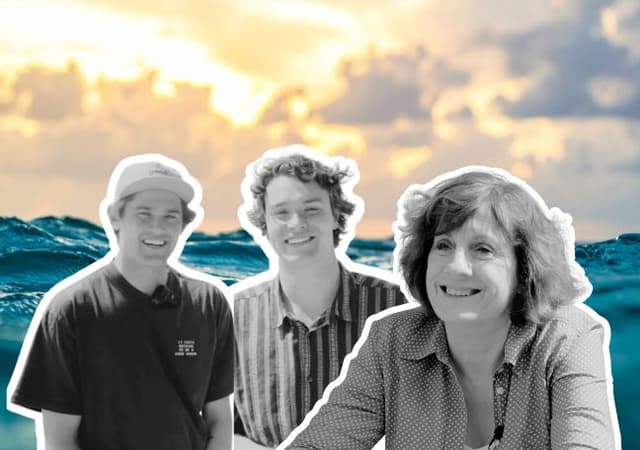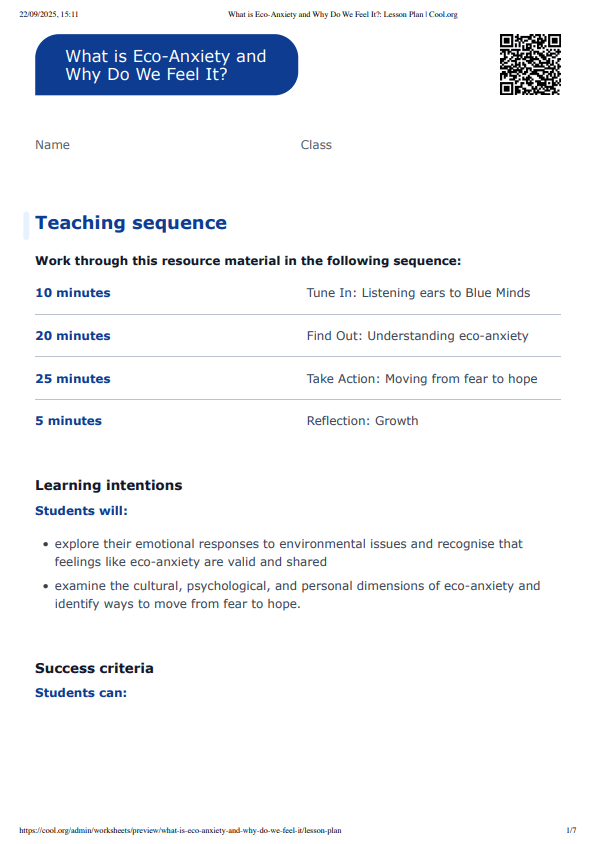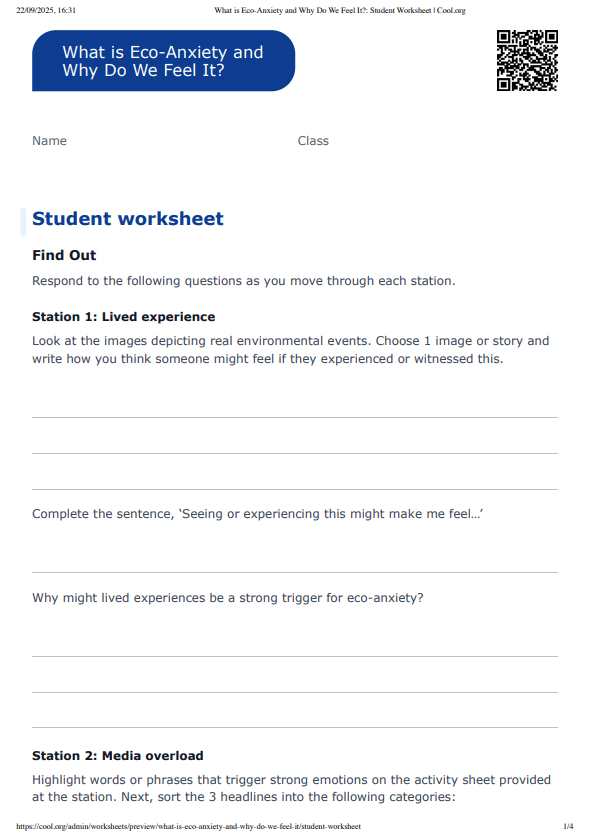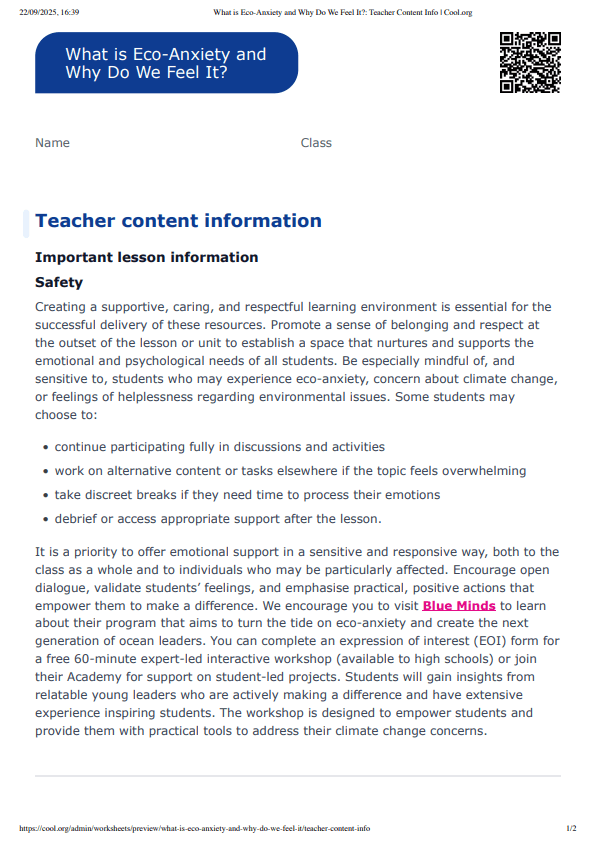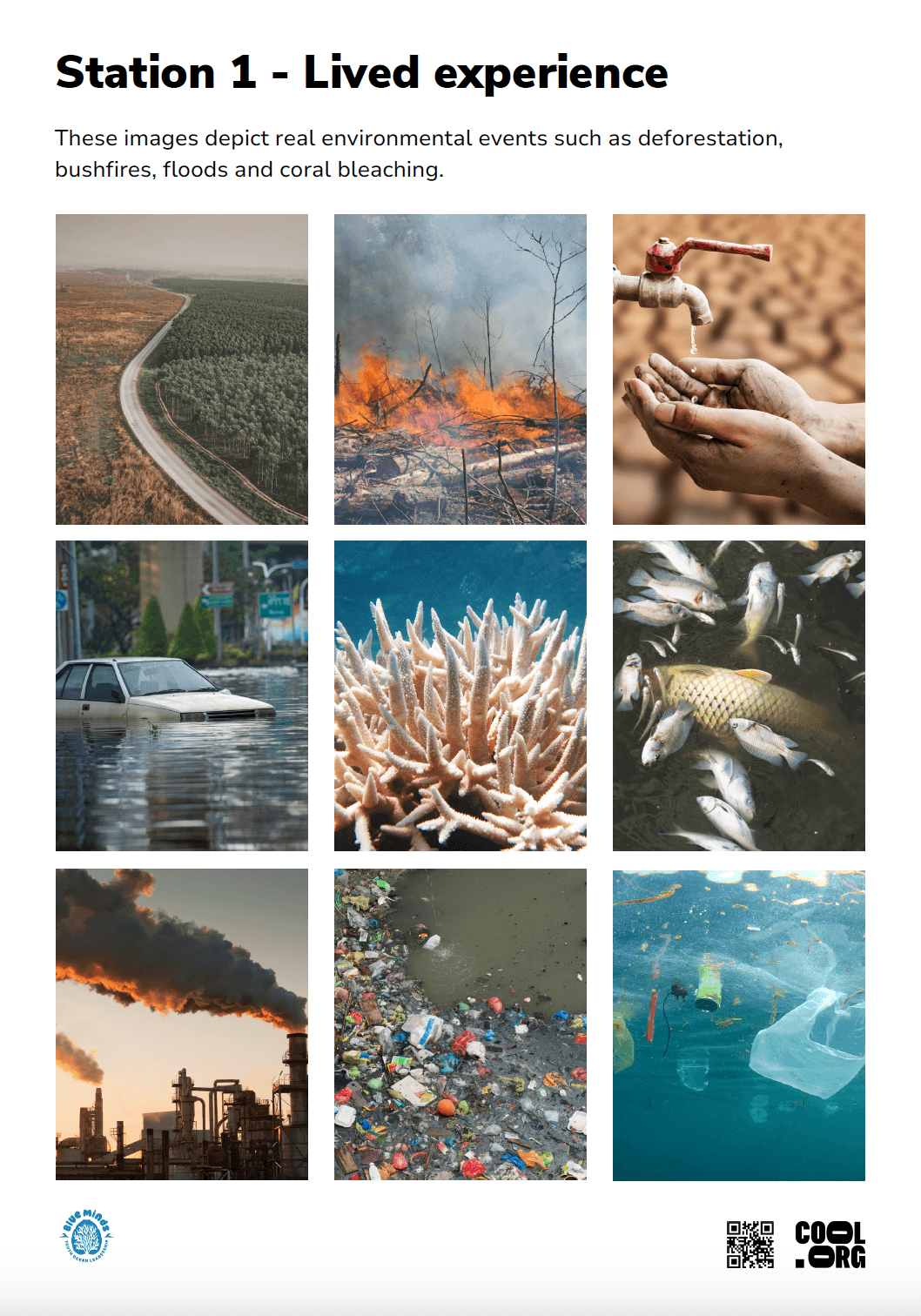Learning intentions
Students will:
- explore their emotional responses to environmental issues and recognise that feelings like eco-anxiety are valid and shared
- examine the cultural, psychological, and personal dimensions of eco-anxiety and identify ways to move from fear to hope.
Success criteria
Students can:
- describe what eco-anxiety is and explain its causes and effects on individuals and communities
- identify at least 1 cultural perspective that demonstrates connection to nature and resilience in the face of climate adversity
- reflect on and express their own emotions related to climate change and suggest strategies for staying hopeful.
